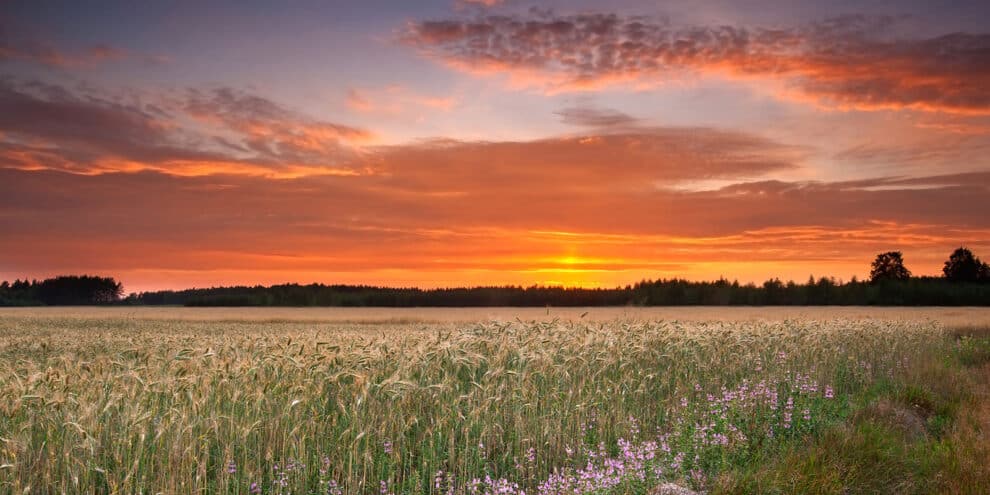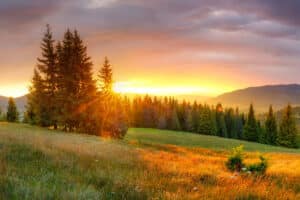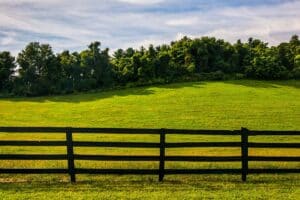Private property ownership is one of the founding principles of the United States of America, and it is a right we still enjoy today. Still, history has shown only a small percentage of people have been privileged enough to enjoy owning their own land, whether passed down from previous generations or purchased outright.
In my experience, the decision to buy rural land is usually driven by a variety of lifestyle choices and opportunities rather than just one single factor. Here are some of the most common reasons I see for why people own rural properties.
1. Outdoor Recreation. Hunting, fishing, hiking, ATVing, horseback riding, bird watching, shooting sports, or simply getting away to the outdoors are some of the main drivers for purchasing your own property.
2. Farming and Agribusiness. These are the folks that truly “live off the land”. Whether cultivating crops, raising livestock, tending poultry houses, or running an “Agri-tainment” business, these buyers earn a living from what they produce and sell.
3. Timberland Investing. Historically, timberland has been a great way to invest money for the long term, producing modest and predictable returns when well-managed. Pine timber can generally grow through its life cycle and produce income for its owner over a 25-30 year period.
4. Conservation. Protecting the natural land’s beauty, resources, and wildlife, in perpetuity, is very appealing. You want future generations to enjoy the land in much the same way you see it now.
5. Homesteading. For many, there is nothing more satisfying than being self-sustained. Living in the country, growing your own food, passing along values to your children, and enjoying a simpler way of life is what fuels the demand for these properties.
6. Building Wealth. “Having something to leave my family when I’m gone” is important and a common refrain for people who want to invest in a tangible asset that can be sold at some point in the future.
7. Capital Preservation. For those who have acquired wealth through the sale of a business or more volatile investments such as the stock market, investing in land can provide a more stable hedge against inflation and the caprice of global markets.
8. Rural Heritage. For those who grew up on a farm or visited a farm often as a child, reliving the past and creating new memories with loved ones are what motivates you to invest in land and your family.
9. Tax Benefits. There are benefits to purchasing land that can help your tax situation. The donation of a Conservation Easement allows you to protect a property and also make a charitable contribution that can be deducted from your income tax over a period of years. 1031 Like Kind Exchanges allow you to sell any property held for investment (commercial, beach rentals, rental houses) and reinvest 100% of the proceeds from the relinquished property into rural land while deferring capital gains tax.
10. Pride of Ownership. Putting your own time, resources and effort into property enhancements is personally fulfilling and brings you great joy. Improving wildlife habitat, establishing a good road system, building water features, and adding structures to your property allows you to get creative and accomplish something you can be proud of for years to come.
Now more than ever, people desire space, freedom and want to feel a connection with the land. Rural land has emerged as an investment that can retain and appreciate its value over time while you have a great time owning it. If you find this article resonates with you, you may be a good candidate for making a rural land purchase. If you have narrowed down your search for rural land and have now settled on a particular piece, here are some critical questions you should ask as you move forward with the purchase.
This content may not be used or reproduced in any manner whatsoever, in part or in whole, without written permission of LANDTHINK. Use of this content without permission is a violation of federal copyright law. The articles, posts, comments, opinions and information provided by LANDTHINK are for informational and research purposes only and DOES NOT substitute or coincide with the advice of an attorney, accountant, real estate broker or any other licensed real estate professional. LANDTHINK strongly advises visitors and readers to seek their own professional guidance and advice related to buying, investing in or selling real estate.










Add Comment